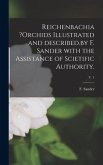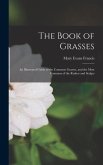Palynology is a scientific discipline that involves the study of plant pollen, spores and certain microscopic planktonic organisms, in both living and fossil form. Palynology has several applications in areas such as aerobiology, archaeology, forensic science and crime scene investigation, and allergy studies. Botany makes use of living pollen and spores to study plant relationships and their evolutions. The study of pollen in honey, with the purpose of identifying the source plants used by bees in the production of honey is known as melissopalynology. This study is beneficial to the production of honey as the honey produced by pollen and nectar from certain plants such as mesquite, buckwheat, tupelo or citrus trees is priced higher than that produced by other plant sources. It also studies the plants that produce nectar and pollen that is dangerous to human health. This book is compiled in such a manner that it will provide in-depth knowledge about the theory and practice of palynology. It is an essential guide for both botanists and students who wish to pursue this discipline further.






![Diatomaceæ of North America [microform]: Illustrated With Twenty-three Hundred Figures From the Author's Drawings on One Hundred and Twelve Plates Diatomaceæ of North America [microform]: Illustrated With Twenty-three Hundred Figures From the Author's Drawings on One Hundred and Twelve Plates](https://bilder.buecher.de/produkte/65/65530/65530641m.jpg)

